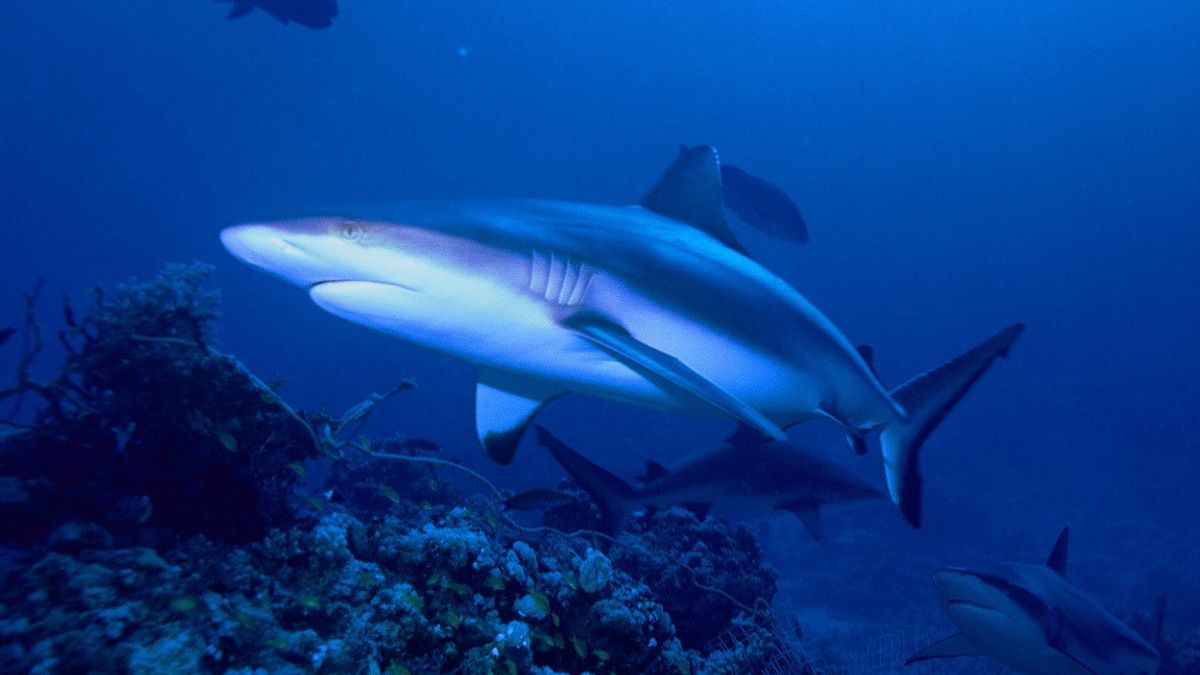JAKARTA - Despite their antisocial reputation, gray reef sharks have formed a social group with bonds that can last for years, according to new research by scientists in Hawaii, United States.
A team of scientists from universities in the UK and US tracked 41 sharks over four years on the remote Palmyra Atoll, in the Pacific Ocean. More than a thousand kilometers south of Honolulu, Hawaii, it is home to a diverse population of species, including rare seabirds, hawksbill, and gray reef sharks.
The cameras mounted on the animals also provide a shark's eye view, allowing scientists to see how many of them are gathering at different times of the day.
With the data they collected, a color-code 'social network' was created, showing a tangled web of shark relationships. Generally, sharks spend the morning together in large groups, dispersing during the day and regrouping with members of the same group at a later date.
"Using a piece of coral reef helps you find your friends", said Yannis Papastamatiou, a marine scientist at the International University of Florida, the United States as reported by Euronews.

"It can be difficult to maintain social bonds when you live in the ocean, but if all the sharks routinely return to the same places on clam reefs, it will help them maintain their group structure", he added.
This species is considered near threatened by the International Union for Conservation of Nature (IUCN) because, like most sharks, they are hunted for their fins and meat.
Overfishing has also reduced the amount of food available to them and the depletion of coral reefs by human activities is destroying their habitats.
Social groups can help sharks to share information, including where to look for prey. Although the team did not note any sharks intentionally helping each other, hunting together could increase their chances of catching something to eat. If one shark sees prey and starts chasing it, other sharks nearby will follow, triggering a chain reaction.
It is difficult to prove that these social relationships exist because sharks do not follow the social rules that animals are usually associated with. They did not call each other, did not love, and did not care about the children they were together with. But they still have 'friends' in their own unique way.
These findings, however, have left researchers with more questions than they have answered. Papastamatiou says knowing some sharks live in social groups means that huge losses to their communities could have devastating consequences for those who remain.
Researchers now want to find out what impact overfishing and habitat loss will have on aquatic social networks.
The English, Chinese, Japanese, Arabic, and French versions are automatically generated by the AI. So there may still be inaccuracies in translating, please always see Indonesian as our main language. (system supported by DigitalSiber.id)











